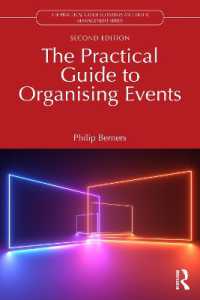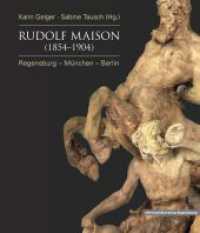- ホーム
- > 洋書
- > 英文書
- > Literary Criticism
Full Description
In the 400 years since The Tempest was first staged, millions of words have been written about it. Critics, directors and actors have interpreted it in widely different ways and developed theories ranging from the more-or-less plausible to the eccentric and the completely outlandish. It is undoubtedly one of Shakespeare's greatest plays, and as well as its bewitching music, its hallucinatory quality and its enchanted island setting, it contains some of Shakespeare's most beautiful poetry and most famous lines. From Caliban's "The isle is full of noises" to Prospero's "We are such stuff/As dreams are made on", The Tempest haunts our collective imagination. But what is it actually about? Is it about British colonialism, as so many modern critics, especially modern American critics, firmly maintain? Is it a Christian play? Or is it, as Sir Peter Hall believes, the "most blasphemous play Shakespeare wrote", about a "man on an island who's allowed to play God and who doesn't just dabble in witchcraft but actually performs it"? Is it an anti-feminist play, as some feminist critics believe? Or does it, on the contrary present a softer, more feminised view of the world than his earlier works? And what does The Tempest, the last play Shakespeare wrote on his own, tell us about his view of art, and of the human condition? This short guide, drawing on the most interesting and arresting criticisms of the play, explains the issues which have perplexed and divided scholars through the ages, and offers a bold, incisive and authoritative view of its own.
Contents
Introduction A summary of the plot What is The Tempest about?What does the play tell us about power? If The Tempest is so sceptical about power, why did James I like it? How are the themes of the play reflected in its structure?Are we meant to sympathise with Prospero? Why has Prospero been so vilified in recent years? Isn't Prospero right when he describes Caliban as a "born devil"?How does Miranda rebel against her father?When does Prospero decide to be merciful?How much weight should we attach to psychological readings of the play? What is distinctive about Shakespeare's use of language in The Tempest?How seriously should we take Prospero when he argues that life itself is an illusion? So what view of the world does Shakespeare leave us with at the end of The Tempest?








